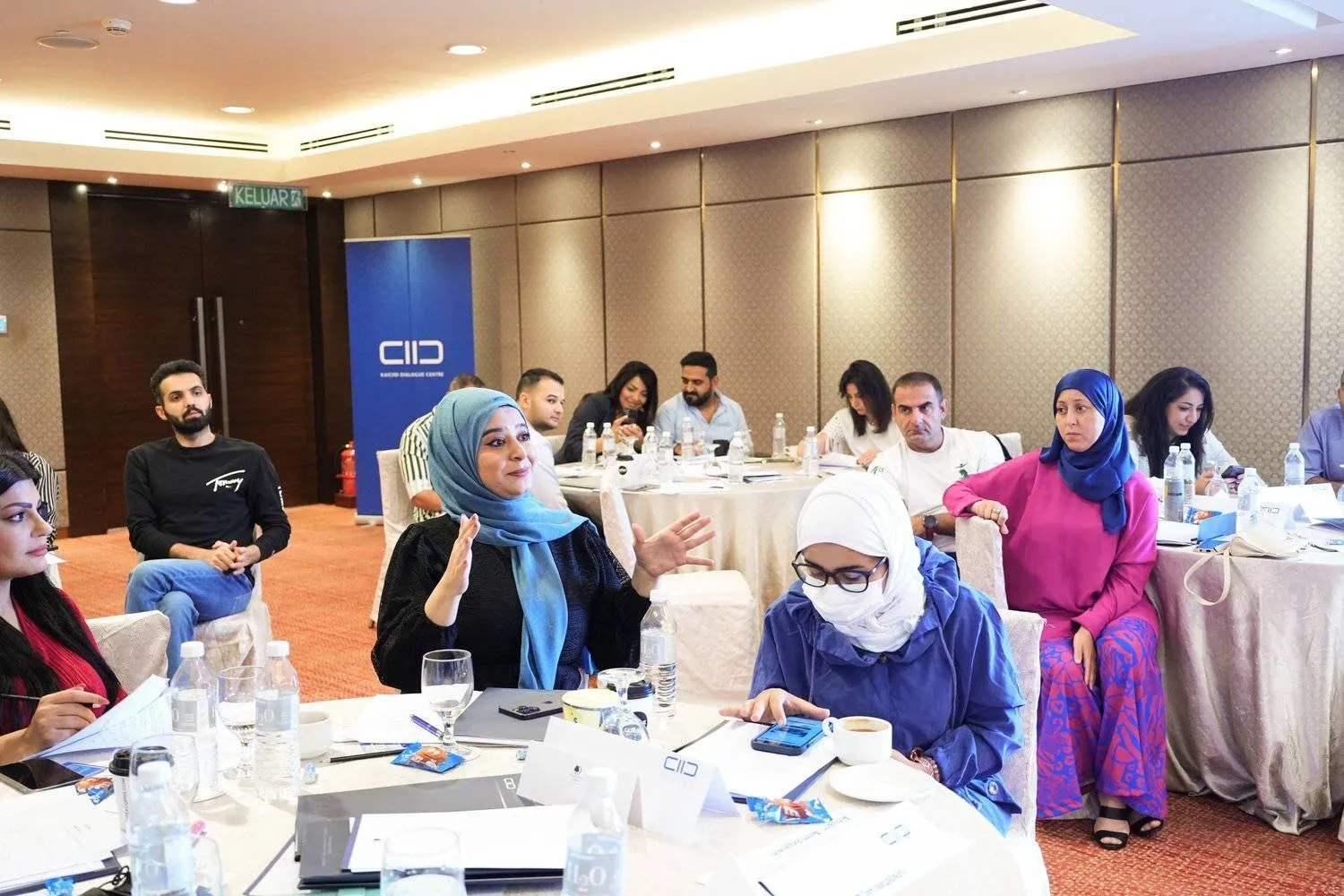The King Abdullah bin Abdulaziz International Center for Interreligious and Intercultural Dialogue (KAICIID) held a training workshop that hosted 32 Arab journalists from different religious and cultural backgrounds in Kuala Lumpur. It focused on understanding conflicts and how to use dialogue and media as efficient tools to address them.
During the second workshop of the Dialogue Journalism Project, the participants improved their knowledge of conflicts, and the decisive role that mediation can play to achieve peace.
They also acquired the necessary skills to use alternative methods to address conflicts by studying different cases of social disputes between two parties and developing sustainable and innovative solutions for these cases.
They trained on drafting “primary agreements” aimed at protecting the rights of all parties and establish peace among them.
Waseem Haddad, program manager in the Arab region, underscored the pivotal role that media can play to enhance coexistence, build sustainable peace, and respect the other who comes from another religious, ethnic, and cultural background. “Media can be a bridge of communication and agreement among different communities, and even among the members of the same community,” he explained.
“Journalists can harness dialogue to resolve conflicts and build communication bridges, which highlights the importance of the Dialogue Journalism Project led by KAICIID in the Arab region,” he said.
The participants said that after five days of various workshops and discussion sessions, they felt more open to accept the other and coexist with them without prejudgments, more committed to fighting hate speech, and more able to enhance peaceful agreements among religions and cultures.
They also acknowledged the importance of joining hands to empower the strategic role of media in promoting dialogue, coexistence, conflict settlement, and peace.









